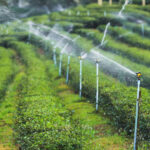Efficient energy management is a cornerstone of modern farming. With rising electricity costs and increasing pressure to adopt sustainable practices, South African farmers must prioritize effective energy use. However, many farmers make critical mistakes that lead to higher costs and inefficiencies. Here are 10 common mistakes in farm energy management and strategies to overcome them.
1. Neglecting Energy Audits
Many farmers overlook conducting regular energy audits, leading to unawareness of inefficiencies. Without audits, it’s difficult to identify where energy is wasted, whether it’s through outdated equipment or poor operational practices.
Solution: Conduct an energy audit at least once a year. Partner with professionals to assess your farm’s energy usage and identify areas for improvement.
2. Using Inefficient Irrigation Systems
Irrigation is one of the most energy-intensive activities on farms. Farmers often rely on outdated or poorly maintained systems, leading to excessive energy consumption and water wastage.
Solution: Invest in energy-efficient irrigation systems like drip irrigation or pivot systems. Regularly maintain pumps and check for leaks to ensure optimal performance.
3. Overlooking Renewable Energy Opportunities
South Africa has abundant sunlight and wind resources, yet many farmers still rely heavily on the national grid, which is costly and prone to interruptions.
Solution: Consider renewable energy options like solar panels or wind turbines. While the initial investment can be high, the long-term savings and reliability make it worthwhile.
4. Running Equipment at Non-Optimal Times
Many farms operate heavy machinery during peak electricity demand periods, resulting in higher costs due to time-of-use tariffs.
Solution: Schedule energy-intensive activities like pumping or cooling during off-peak times. This practice reduces electricity costs and aligns with load-shedding challenges.
5. Failing to Maintain Equipment
Poorly maintained equipment, such as tractors, generators, and cooling systems, consumes more energy than necessary. Ignoring regular maintenance also shortens the lifespan of machinery.
Solution: Develop a maintenance schedule for all farm equipment. Clean, lubricate, and replace parts as needed to maintain efficiency.
6. Ignoring Insulation Needs
Insufficient insulation in storage facilities, greenhouses, or refrigeration units can lead to significant energy losses. This is particularly relevant for farms dealing with perishable goods.
Solution: Insulate cold storage rooms, pipes, and greenhouses to prevent energy leakage. High-quality insulation can significantly reduce heating and cooling costs.
7. Overlooking Lighting Efficiency
Farms often use outdated lighting systems that consume excessive electricity. Lights left on unnecessarily or using high-energy bulbs adds to energy bills.
Solution: Switch to LED lighting, which consumes less energy and has a longer lifespan. Use motion sensors and timers to ensure lights are only used when needed.
8. Not Leveraging Smart Technology
Some farmers rely solely on manual processes for energy management, missing out on the efficiency offered by smart technology.
Solution: Implement smart meters and automation systems to monitor and control energy use. For example, remote monitoring can optimize irrigation and equipment use based on real-time data.
9. Relying on Diesel Generators
While diesel generators are a common backup power source, they are expensive to operate and produce high emissions. Over-reliance on them increases costs during frequent load-shedding.
Solution: Transition to hybrid systems that combine renewable energy and battery storage. This reduces dependence on diesel generators and cuts fuel costs.
10. Lack of Employee Training
Farm workers often lack the necessary training to operate equipment efficiently, leading to wasteful energy practices.
Solution: Provide regular training sessions for employees. Teach them how to use equipment correctly, shut down systems when not in use, and follow energy-saving protocols.
For South African farmers, efficient energy management is not just about reducing costs—it’s about creating a sustainable future. By addressing these common mistakes, you can lower energy consumption, improve productivity, and reduce your farm’s environmental footprint.
Start small by conducting an energy audit and gradually implement changes. The savings and long-term benefits will make it a worthwhile investment.







